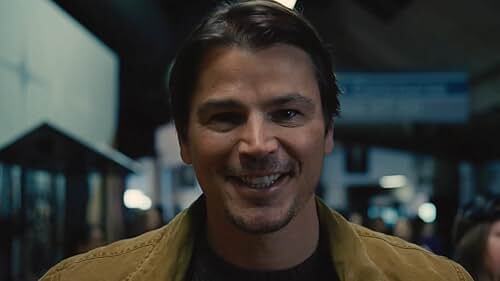When a Writer Falls for His Own TRAP
I want to start this post with a disclaimer: I LOVE M. NIGHT SHYAMALAN. I’ve been a fan since the beginning: The Sixth Sense, Signs, The Village. I’ll argue that Unbreakable, Split, and Glass comprise one of the best trilogies of all time. I even have love for the universally panned Lady in the Water; I think it’s a masterclass in metafiction. And The Happening? There are sequences from that film that will never leave me.
I need to say all that because my criticism of his latest film Trap comes from a place of love. It really does.
As part of continuing my seven healthy habits for a successful writer, I’ve been consuming A LOT of media. I finished reading The Eyre Affair by Jasper Fforde and started reading The Joy Luck Club by Amy Tan. Today, I watched Hulu’s documentary about Bruce Springsteen and the E Street Band (incredible!) and I finally got around to watching Trap. It’s been on my list for a while because I respect Shyamalan as a storyteller so much, and because I’ve loved Josh Hartnett since The Faculty. I had such high hopes for this film.
 Seriously, though; the amount of fan fiction I wrote about Josh Hartnett’s character Zeke and his car … embarrassing.
Seriously, though; the amount of fan fiction I wrote about Josh Hartnett’s character Zeke and his car … embarrassing.Shyamalan is known for his thrilling twists, but those plots work largely because of the believable dynamic between his characters. I would argue that is what’s missing from Trap. The film follows Cooper, brilliantly played by Josh Hartnett, a psychopath masquerading as a family man who takes his daughter, Riley, to a concert to celebrate her report card. However, authorities figure out “The Butcher,” which is Cooper’s moniker, is going to be at the concert and set a trap.
It’s an interesting premise with built-in tension — how can Cooper leave the concert without being detected?
To manage that, Shyamalan unfortunately keeps writing himself into corners. By that, I mean he creates situations with only one or two possible outcomes that hold even a modicum of verisimilitude, which Shyamalan ignores. Instead, he presents his audience with contrived plot elements, testing an already strained willing suspension of disbelief. So the killer escapes just a few times too many and in ways that are increasingly unbelievable.
And Josh Hartnett needs a worthy adversary. His acting is great, but it can’t carry the entire narrative, and it can’t patch up some gaping plot holes. Why would the FBI tell a pop star about the murderer’s psychological profile? Is it believable she would pretend to be the murderer’s mom to set him off? And who is this girl? I saw a review on Instagram that accused Shyamalan of just using the film as a vehicle to start his daughter’s career — she plays the pop star. That may have colored my viewing, but it really does seem the only reason for the film’s third act. I think it might have worked with different casting, if the pop star was someone the audience was familiar with. It was hard for me to believe this pop star could take down Hartnett’s increasingly unstable villain.
Shyamalan likes to keep the audience guessing. However, with Trap, Shyamalan left me rolling my eyes. It was like he was cheating to win, inventing scenarios that were essentially implausible so the audience would be “surprised.” I would argue that’s when the writer sacrifices the efficacy of the narrative for a gimmick, or when the writer writes himself into a corner, or falls for his own trap.
 He seriously played this character so well. I would have totally loved a whole movie just about him becoming The Butcher.
He seriously played this character so well. I would have totally loved a whole movie just about him becoming The Butcher.The post When a Writer Falls for His Own TRAP appeared first on mandi bean: writer.



